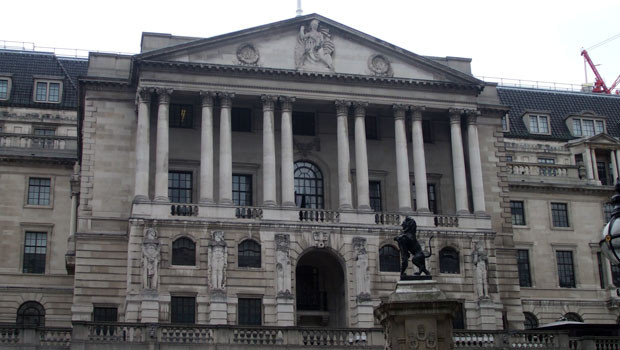BoE raises interest rates to 0.25% in surprise move

The Bank of England voted for a surprise increase in interest rates to 0.25% on Thursday to stop inflation taking hold with prices rising faster than expected.
At its last meeting of 2021 the BoE's monetary policy committee voted 8-1 for rates to rise from their record low of 0.1%. External member Silvana Tenreyro voted to keep rates unchanged. The MPC voted unanimously to stick to its targets for buying bonds.
The MPC judged that a rate rise was needed to start bringing inflation back to the BoE's target of 2% from 5.1% now, the meeting minutes said. The BoE raised its forecast for inflation to peak at 6% from a prediction of 5% in November and said there were signs of "greater persistence in domestic cost and price pressures".
Economists had expected the BoE to leave rates on hold because of rising uncertainty about the Omicron variant of Covid-19. It was the second month in a row that the BoE took markets off guard after allowing expectations for an increase to gather steam in November and then leaving policy unchanged.
"Although the Omicron variant is likely to weigh on near-term activity, its impact on medium-term inflationary pressures is unclear at this stage," the minutes said. The pound rose 0.74% to $1.3360 following the MPC's announcement.
Inflation is at a decade high and unemployment has fallen despite the end of furlough support. The MPC judged that these conditions meant it was time to start tightening monetary policy despite signs the economy was faltering.
UK economic activity slowed sharply in December as growing uncertainty caused a sharp drop in services and a dip in the manufacturing purchasing managers' index, a report showed on Thursday. The BoE's rate setters saw the gloomy report before voting.
Samuel Tombs, chief UK economist at Pantheon Macroeconomics, said: "The MPC’s decision to hike Bank Rate today, before it knows the full extent of the economic damage wrought by the surging Omicron variant, underlines how worried it is about the outlook for inflation and the risk that inflation expectations would de-anchor if it did nothing."
Economists had expected the MPC to increase rates at Thursday's meeting until the rapid spread of the Omicron variant in December. Markets switched to forecast a rate rise in early 2022 but most MPC members decided conditions were finely balanced in favour of an immediate increase, the minutes said.
When inflation started to rise with the unlocking of economies the BoE said it expected the effect to be "transitory" and kept monetary policy loose to support growth. After prices rose faster than the BoE expected the International Monetary Fund on Tuesday urged the MPC to act early to avoid inflation getting out of hand.
"There was … a strong case for tightening monetary policy now, given the strength of current underlying inflationary pressures and in order to maintain price stability in the medium term," the MPC's minutes said. "The economic impact of the new variant could, in some scenarios, increase these inflationary pressures further."